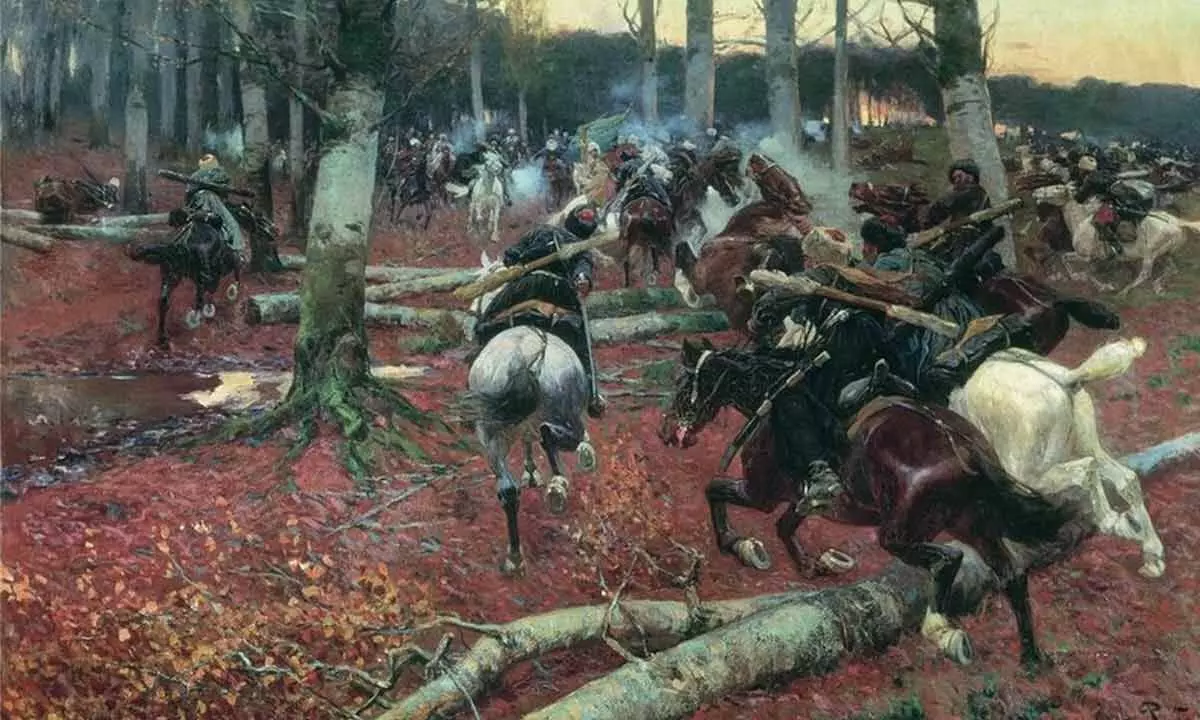Peacemakers needed for Caucasian war

Representational image
Is India getting drawn into the Armenia-Azerbaijan conflict deliberately? It is not yet clear whether this is true but some reports suggest that Armenia has placed an order with India for the Pinaka multi-barrel rocket launcher that is designed and developed by the Defence Research and Development Organization (DRDO), making it the first big export order for the system. Armenia has also procured anti-tank weapons from India.
Is India getting drawn into the Armenia-Azerbaijan conflict deliberately? It is not yet clear whether this is true but some reports suggest that Armenia has placed an order with India for the Pinaka multi-barrel rocket launcher that is designed and developed by the Defence Research and Development Organization (DRDO), making it the first big export order for the system. Armenia has also procured anti-tank weapons from India.
Both the countries have long been locked in a conflict over Nagorno-Karabakh in an ethnic and territorial conflict here. The area is inhabited mostly by ethnic Armenians, and the seven surrounding districts are inhabited mostly by Azerbaijanis. Some of these territories are de facto controlled, and some are claimed by the breakaway Republic of Artsakh although they have been internationally recognized as part of Azerbaijan. The conflict has its origins in the early 20th century, but the present conflict began in 1988, when the Karabakh Armenians demanded transferring of Karabakh from Soviet Azerbaijan to Soviet Armenia. The conflict escalated into a full-scale war in the early 1990s which later transformed into a low-intensity conflict until a four-day escalation in April 2016 and then into another full-scale war in 2020. A ceasefire signed in 1994 in Bishkek was followed by two decades of relative stability, which significantly deteriorated along with Azerbaijan's increasing frustration with the status quo, at odds with Armenia's efforts to cement it. A four-day escalation in April 2016 became the deadliest ceasefire violation until the 2020 conflict.
A tentative armistice was established by the tripartite ceasefire agreement on November 10, 2020, by which most of the territories lost by Azerbaijan during the First Nagorno-Karabakh war were returned to Azerbaijan's control. The president of Azerbaijan, Ilham Aliyev, claimed that the conflict had thus ended; however, the ceasefire agreement was followed by the 2021–2022 Armenia-Azerbaijan border crisis from May 2021 onwards, with saw casualties on both sides. The latest conflict stems from the fact that Armenia which was being defended by Russia all these days against Azerbaijan and its proxies, Pakistan and Turkey, is in a piquant situation today with its big brother being occupied with its military action against Ukraine.
Reports now suggest that India is planning to export its missiles, arms and ammunition to Armenia which is a slightly dicey proposal. Azerbaijan is waging a war against Armenia not on its own but with the help of not only Pakistan and Turkey but also of China. Azerbaijan continues to project it as a challenge to a Muslim nation. The ongoing border crisis started on 12 May 2021, when Azerbaijani soldiers crossed several kilometers into Armenia in the provinces of Syunik and Gegharkunik, occupying about 41 sqkm of Armenian territory. Azerbaijan has not withdrawn its troops from internationally recognised Armenian territory despite calls to do so by the European Parliament, United States and France. Given this background, it would not be long before Pakistan raises India's question in the company of China. Turkey is always an ever willing partner for them. As the Prime Minister Narendra Modi said, these are not the times of war. These wars could have a domino effect and conflicts might be the result of several reasons. The Russian-Ukraine conflict has also led to China's sabre-rattling over Taiwan. It is time wiser counsel prevails over the world leaders.








